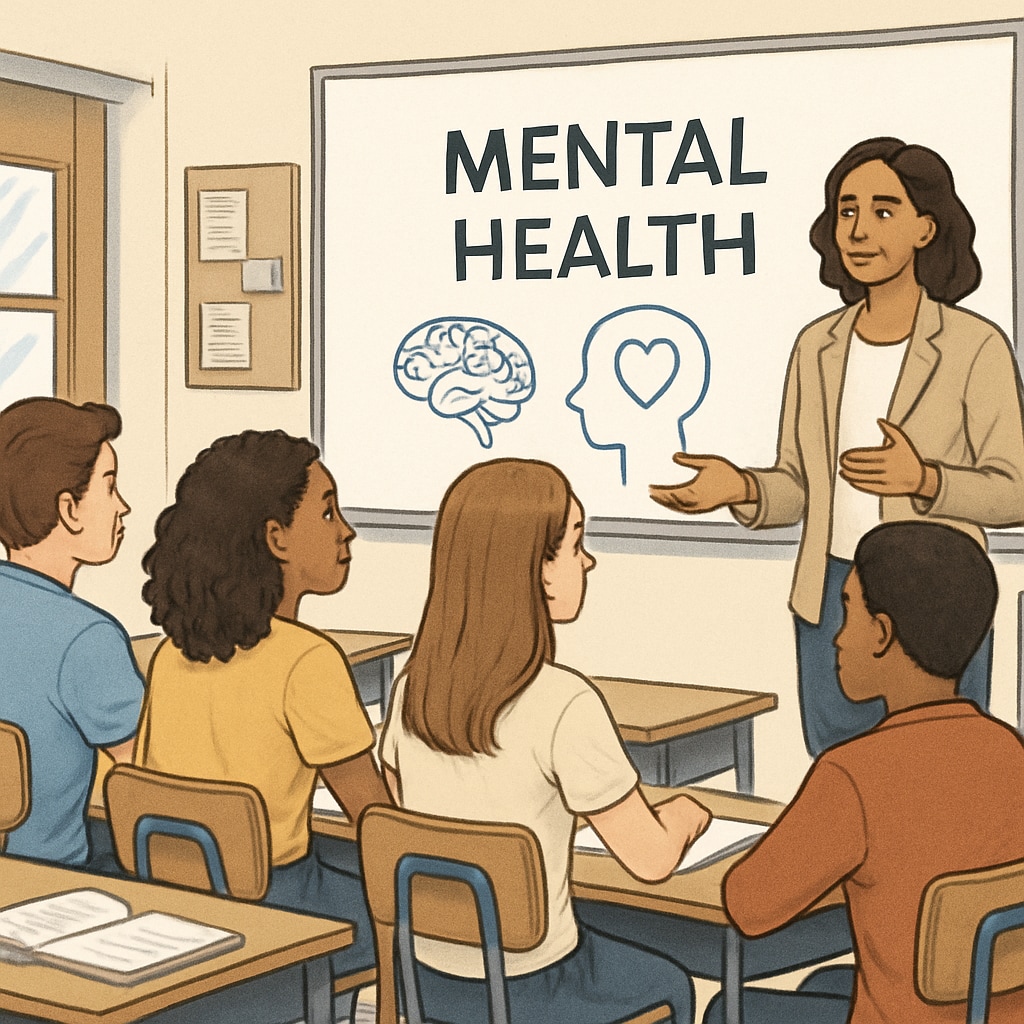Addressing the mental health needs of high school students is becoming increasingly important in today’s fast-paced world. Workshops, particularly those led by medical students, can provide a vital platform to discuss mental health issues. This article focuses on how medical students can effectively organize workshops to support high school students’ emotional well-being, covering outreach strategies, content development, and practical implementation steps.

Why Mental Health Workshops Matter for High School Students
Adolescence is a critical period marked by emotional and social challenges. High school students often face academic pressure, social anxieties, and personal struggles that can impact their mental health. Mental health workshops offer an opportunity to address these concerns, provide coping strategies, and foster dialogue on emotional well-being.
Medical students are uniquely positioned to lead these workshops due to their foundational knowledge of psychology and health sciences. Additionally, their relative proximity in age to high school students helps create a relatable and empathetic connection.
Steps to Organize an Effective Mental Health Workshop
Organizing a successful workshop requires careful planning and execution. Below are key steps to ensure your initiative makes a meaningful impact:
- Establish Outreach Channels: Reach out to school administrators, teachers, and local education boards to propose the workshop. Use email campaigns or personal networking to connect with stakeholders.
- Understand Your Audience: Conduct pre-workshop surveys or focus group discussions to learn about students’ concerns. Tailor the content based on their needs.
- Design Engaging Content: Focus on relatable topics such as stress management, self-esteem, and coping mechanisms. Use interactive methods like role-playing or group discussions to make the material engaging.
- Leverage Visual Aids: Incorporate slides, videos, and handouts to enhance understanding. Visual aids can simplify complex psychological concepts.
- Follow Up: After the workshop, provide students with resources such as helpline numbers or websites for further support. You can also conduct feedback surveys to improve future sessions.

Challenges and Solutions in Conducting Workshops
While organizing mental health workshops is rewarding, it can also be challenging. Common issues include limited time, reluctance among students to participate, and logistical barriers. Below are ways to address these challenges:
- Time Constraints: Collaborate with school staff to schedule workshops during non-academic hours, such as weekends or after-school periods.
- Engagement Issues: Use relatable anecdotes, humor, or interactive activities to encourage participation. Peer-to-peer discussions can also make students feel more comfortable.
- Logistical Barriers: Plan ahead for technical requirements like projectors, microphones, and seating arrangements to avoid last-minute issues.
By proactively addressing these hurdles, workshops can run smoothly and have a lasting positive impact on attendees.
Long-Term Impact of Mental Health Workshops
Workshops led by medical students can foster a culture of openness and acceptance surrounding mental health. High school students who attend these sessions often gain valuable tools to manage stress, build resilience, and develop healthier relationships. Furthermore, such workshops can encourage students to seek professional help when needed, reducing stigma around mental health care.
Medical students, in turn, benefit from honing their communication and empathy skills while making a tangible difference in their communities. This mutual growth underscores the significance of bridging the gap between medical education and public service.
As mental health awareness continues to grow, workshops like these can serve as a cornerstone for nurturing emotionally healthy youth, ensuring they are equipped to face the challenges ahead.
Readability guidance: Use concise paragraphs and actionable lists to enhance clarity. Incorporate relatable examples and transition words (however, therefore, as a result) to maintain coherence throughout the article.


